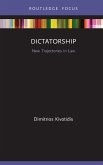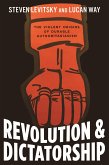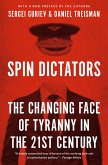Bringing together leading scholars from across the UK, North America and mainland Europe, this book provides a uniquely comparative exploration of daily life under dictatorship in 20th-century Europe. With coverage of well-known regimes and some that are relatively underrepresented in the literature from right across the continent, it examines the impact felt on people's lives amidst political administrations characterised by some or all of the following: a one-party state, in which opposition or multiple parties were banned; a cult surrounding the leader; the censorship of the press and other publications; the widespread use of propaganda and political persuasion; and the threat or use of force by the regime and its agents. The chapters investigate crucial questions in relation to life under dictatorships as follows: · What was the impact of censorship on access to news or entertainment? · How was leisure time conducted? · What was the impact of the regime on working life? · What was the scope for dissent and resistance? To what extent were these possible? · How much did the regime coerce the population and how much did it try to indoctrinate? · What was the difference for Party leaders, comrades and members in terms of the possibilities and opportunities that opened up, compared to everyone else in society? · With the shutting down - to a large extent - of civil society and state intrusion into private life, what restrictions were placed on ordinary and day-to-day activities? · What happened to religious life and to cultural life and the arts? · How were personal choices in aspects of life such as reproduction, education and even eating affected by these regimes? · What was the impact of different political ideologies on people's way of life - whether Fascist, Nazi or Communist? Dictatorship and Daily Life in 20th-Century Europe addresses these issues and more, striking to the heart of European life in the darkest episodes of its recent history.
Hinweis: Dieser Artikel kann nur an eine deutsche Lieferadresse ausgeliefert werden.
Hinweis: Dieser Artikel kann nur an eine deutsche Lieferadresse ausgeliefert werden.








